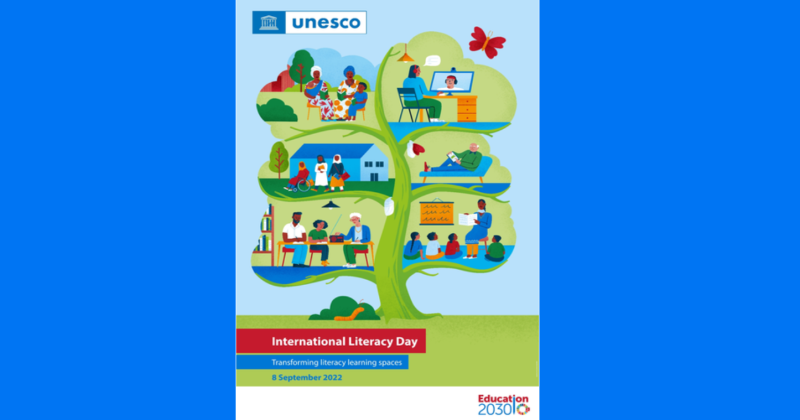Susan O'Rourke | August 24, 2022

Recent news about efforts to secure education for girls in Afghanistan has brought needed attention to the critical role literacy plays in educational advancement and economic opportunity, both globally and locally. Around the world, organizers and educators are working to achieve educational equity and meet Sustainable Development Goal 4 where “all youth and most adults achieve literacy and numeracy by 2030.” Investment in education is particularly important as, UNESCO’s Institute of Statistics reports, “there are still 773 million illiterate adults around the world, most of whom are women.”
Despite the challenges efforts to improve learning outcomes are being made by individual educators, families, universities, governments, and NGOs who believe, as the Friday Institute expressed, “that literacy is powerful and liberatory — with reading, writing and speaking as not just tools but values that lead to personal and social change, especially for marginalized populations….and that literacy is a vehicle for critical thinking and action for the self, community and world (Freire, 1970)….[that] leads to increased self-esteem, critical action and global citizenship.
We are so grateful to educators committed to expanding literacy and helping students become thoughtful and intellectually curious global citizens!
Take a look through the following resources on initiatives to improve literacy in North Carolina and around the world and to teach International Literacy Day on September 8th.
Literacy Resources for Educators
- Literacy at Home: Children’s Reading Initiative (NC Department of Public Instruction)
- In order to provide continuing support for North Carolina’s youngest readers, The North Carolina Department of Public Instruction Office of Early Learning has developed and released “Literacy at Home.” This digital resource provides literacy activities at each grade level, pre-kindergarten through fifth grade. Families and communities may access this resource for activities that specifically target the literacy skills of phonemic awareness, phonics, fluency, vocabulary, reading comprehension, and oral language. When children grow in each of these foundational areas, they are well on their way to becoming proficient readers.
- Resources for Educators from NCSU’s College of Education
- Cultivating Young Readers: Seven Principles for Teaching All Children to Read in a Global Society
- Helping Teen Readers Find the Right Book
- KnERD Bites Videos (“This free…video series addresses topics like helping children decode words and supporting word recognition in under 10 minutes.”)
- New Book from Professor Hiller Spires Guides Teachers Through the Use of Project-Based Inquiry, Disciplinary Literacy
- Belser-Parton Literacy Center at the University of Alabama
- Smart Start Recommended Resources (The North Carolina Partnership for Children)
Resources on Sustainable Development Goal 4 and Literacy Around the World
- Meeting Commitments: Are Countries on Track to Achieve SDG 4? (Report from UNESCO Institute for Statistics)
- International Literacy Day (September 8th) (UNESCO)
- Why Literacy Matters (UNICEF)
- World Literacy Foundation
- Germany: National Decade for Literacy and Basic Skills 2016-26 (CEDEFOP)
